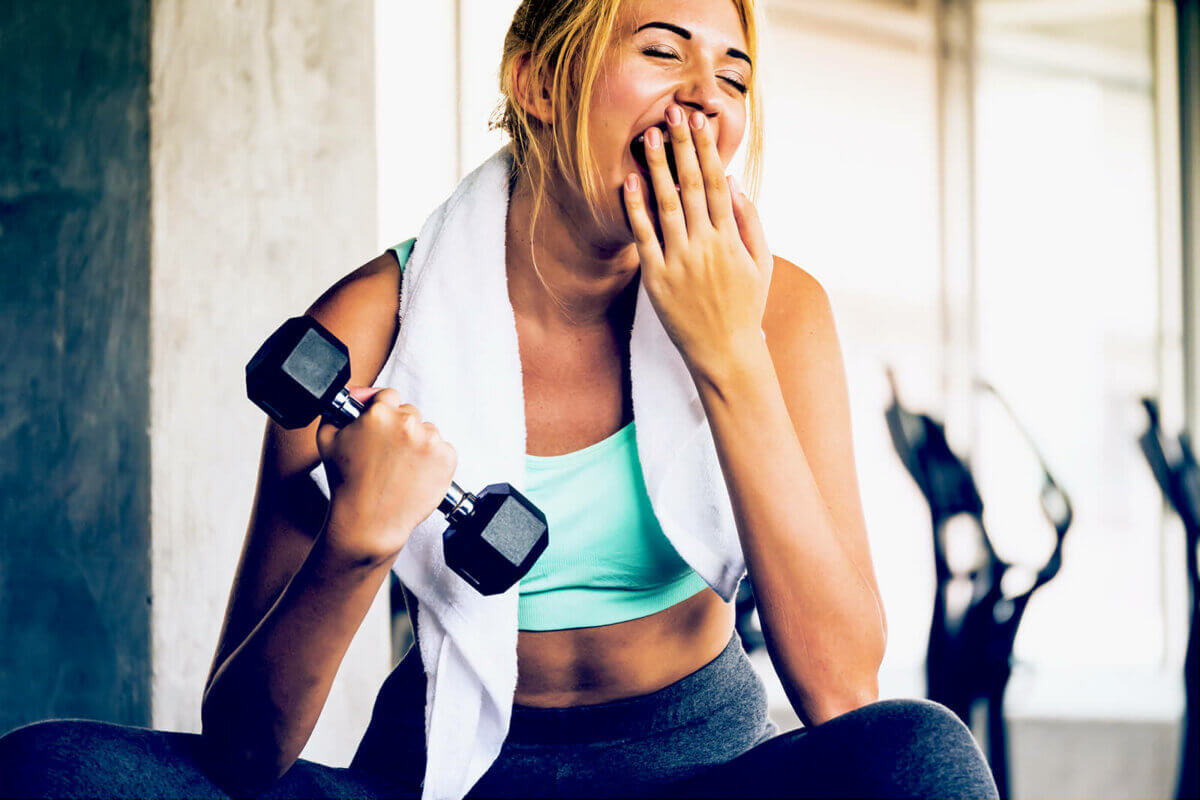The importance of sleep is often the first thing mentioned when discussing recovery from exercise and almost everyone is aware that chronically undersleeping is associated with negative performance and health outcomes. But what about that one bad night of sleep here and there? How does acute sleep loss impact performance and are there strategies to mitigate its potential negatives?
Overview
What did they test? The authors of this paper performed a systematic review and meta-analysis of the current available literature to understand the effect of acute sleep loss (equal to or less than 6 hours of sleep in 24 hours) on physical performance.
What did they find? Overall, acute sleep loss negatively affected physical performance (strength, endurance, anaerobic power etc) by about -7.5% with negative effects being more pronounced when exercise was performed in the evening (versus in the morning). The negative effects of acute sleep loss were somewhat different for each performance measure assessed, but a meaningful negative effect was observed for the majority of them.
What does it mean for you? Do your best to get 7-8 hours of sleep per night. Whenever you have a bad night of sleep, try to prioritize training earlier in the day and if that’s not possible consider a 20-30 minute nap.
What’s the Problem?
Sleeping enough is not just crucial for making gains but also for physical and mental health as well as emotional and metabolic regulation 1. People who have their sleep on point tend to be healthier and perform better than people who don’t, which is why you often hear “sleep” being praised as one of the main pillars of recovery. Despite everyone being aware of the importance of sleep, a lot of people seem to be chronically sleep deprived 2. Additionally, it is common for people in high stress environments (eg: University students, busy professionals) to get little sleep, often as a result of high stress, long working hours and poor sleep hygiene 3. But how much sleep is just right for overall health? An overview of systematic reviews published in 2020 concluded that 7-8 hours of sleep per night seem to be the amount associated with the most favorable health outcomes 4. Although sleep duration is not the only important factor in “good sleep”, sleep quality is also important but can often be a bit harder to quantify when trying to give practical recommendations.
Despite sleep being an important factor in staying on top of your health and fitness game, the potential deleterious effects of a reduction in sleep duration have also been overstated, especially in the mainstream media. For example, in the best-selling book “Why we sleep” by Matthew Walker it is stated that “routinely sleeping less than six or seven hours a night demolishes your immune system, more than doubling your risk of cancer”, claims that are somewhat hyperbolic and not really supported by the current available data 5. That said, chronically undersleeping is definitely bad news for health and performance but what about acute sleep loss?

What happens to performance when we have that one bad night of sleep? Does it make sense to go to the gym even though you slept less than usual or will working out on less sleep be a waste of time? Does it matter whether you workout in the morning or evening if you’re sleep deprived? This systematic review and meta-analysis by Craven et al aims may have the, or at least some, answers!
Purpose & Hypothesis
The authors did not formally state a hypothesis but the aim of the study was to systematically review the current available data on the effects of acute sleep loss (less or equal to 6 hours of sleep in 24 hours) on a variety of different performance outcomes (strength, power, endurance etc).
What Did They Test and How?
Participants
A total of 77 studies were included with a total of 959 participants and 227 outcome measures (power, endurance, strength etc). The majority of the participants (around 90%) were male.







